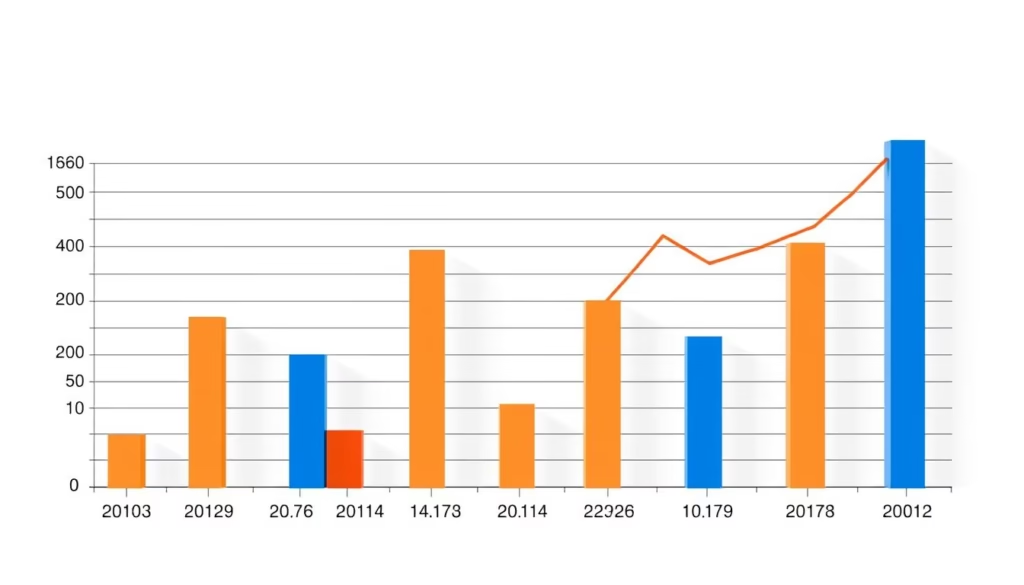The UK government has made big changes to the Dependent Visa rules. These changes affect family members of visa holders.
These updates are key for those planning to bring family to the UK. They change who can apply and how to do it.
It’s vital to grasp the new rules. This helps you get through the UK visa system smoothly.
Key Takeaways
- Changes in eligibility criteria for family members.
- Updated documentation requirements.
- Impact on application processing times.
- New financial requirements for sponsors.
- Important deadlines to keep in mind.
What is a UK Dependent Visa?
The UK Dependent Visa lets family members join their relatives in the UK. It’s a way to be together again. The UK government says it’s for family members of visa holders who want to live with them in the UK.
Definition and Purpose
The main goal of a UK Dependent Visa is to keep families together. It’s a key way for those with family in the UK to join them. This visa is vital for those with family already in the UK on a valid visa.
Types of UK Dependent Visas
There are many types of UK Dependent Visas. They cater to different family members.
Spouse and Partner Visas
Spouse and partner visas are for those in a real relationship with a UK visa holder. You must show your relationship is real and ongoing.
Child Dependent Visas
Child dependent visas are for kids under 18 or those financially reliant on the UK visa holder.
Parent and Other Family Member Visas
Parent and other family member visas are for parents or other relatives who depend financially on the UK visa holder. “The UK government has specific requirements for these visas, including financial dependency and maintenance.”
As uk visa statistics show, visa application numbers can change. This is due to policy updates and world events. Knowing the latest rules and needs is key for a successful application.
Recent Changes to UK Dependent Visa Rules
The UK government has made several changes to the Dependent Visa rules. These updates aim to reform the UK’s immigration system. They affect how people apply for dependent visas.
Timeline of Rule Changes
Over the years, the UK Dependent Visa rules have seen updates. A big change happened in 2022 when the financial needs for these visas were updated. Then, in 2023, the rules for who can apply were tweaked again.
| Year | Change |
|---|---|
| 2022 | Revision of financial requirements |
| 2023 | Adjustments to eligibility criteria |
Key Policy Shifts
One major change is the stricter financial rules for dependent visas. Now, applicants need to show they can support their dependents better. The rules also changed on what counts as income for these applications.
“The new rules reflect the government’s commitment to ensuring that those who come to the UK are able to support themselves and their families without recourse to public funds.” – UK Government Statement
Government Rationale Behind Changes
The government wants to control immigration better. They say these changes make the system fair and sustainable. The drop in visa applications shows these efforts are working.
These updates are part of a bigger effort to change the UK’s immigration system. As the UK’s role in the world changes, so will these policies.
Understanding the UK Dependent Visa New Rules in Detail
It’s important to know the new rules for the UK’s dependent visa. Recent changes have made big updates to the application process. These changes affect many parts of the application.
Financial Requirement Changes
The financial rules for dependent visa applicants have changed. These updates make sure applicants have enough money to live in the UK.
Minimum Income Thresholds
The income needed for a dependent visa has gone up. For example, the Skilled Worker visa now requires more money. Applicants must show they meet this requirement with payslips, bank statements, or other documents.
Savings Requirements
The savings rules have also changed. Now, applicants must show they have a certain amount saved for 28 days. This proves they are financially stable.
Duration and Settlement Path Modifications
The length of stay and path to settlement have changed. These updates affect how long you can stay and what you need to do to settle in the UK.
Changes to Family Reunification Policies
Family reunification policies have been updated. These changes make it harder to prove relationships and meet financial needs.
The new rules show the government’s aim to control immigration while keeping families together. Knowing these changes is key to a successful application.
Eligibility Criteria Under the New Regulations
The UK government has updated the rules for dependent visas. It’s important to know these changes. The new rules are stricter, covering relationship, money, English, and where you’ll live.
Relationship Requirements
To qualify, you must show a real connection with the main visa holder. This can be with marriage certificates, birth certificates, or other documents. The UK wants to make sure these relationships are real to stop visa misuse.
Financial Thresholds
The new rules also mean you need more money. You must show you can support yourself without public help. The amount needed depends on your visa type and how many dependents you have.
English Language Requirements
Dependents must now show they can speak some English. This means passing a language test. The goal is to help you fit into UK life.
Accommodation Standards
You also need to meet housing standards. Your home must be big enough and not overcrowded. This is to protect UK housing and ensure a good life for dependents.
Knowing these rules helps you through the UK dependent visa application. Make sure you meet all the criteria to avoid your application being turned down.
The Application Process for Dependent Visas
Getting a dependent visa in the UK needs careful planning and detail. You must follow several steps. These include gathering documents and giving biometric information.
Required Documentation
To apply for a dependent visa, you need certain documents. These are:
- Proof of Relationship: You’ll need documents like birth or marriage certificates. They must show your connection to the main visa holder.
- Financial Evidence: You’ll need bank statements or payslips. These should show you have enough money to support yourself without public help.
Proof of Relationship
It’s important to use original documents or certified copies. For example, a birth certificate for a child or a marriage certificate for a spouse.
Financial Evidence
Your financial documents must be current. They should also show you meet the UK’s financial requirements.
Application Fees and Healthcare Surcharge
You’ll have to pay an application fee and a healthcare surcharge. The costs depend on the visa type and how long you plan to stay.
| Visa Type | Application Fee | Healthcare Surcharge |
|---|---|---|
| Dependent Visa (less than 3 years) | $100 | $300 per year |
| Dependent Visa (more than 3 years) | $200 | $300 per year |
Biometric Information Requirements
Applicants must give biometric information. This includes fingerprints as part of the application.
Processing Times and Tracking
After you apply, you can track your application online. Most applications are processed in a few weeks.
Knowing the application process and preparing well can help you get a dependent visa.
Impact of New Rules on Different Visa Categories
The new rules for UK Dependent Visas will change a lot. They will affect different groups in different ways. This depends on their visa status and situation.
Work Visa Dependents
Work visa dependents will see big changes. The rules for Skilled Worker Visa dependents are key. They make up a big part of work visa holders.
Skilled Worker Visa Dependents
Dependents of Skilled Worker Visa holders will face new financial rules. They might also wait longer to settle in the UK. This could make it harder for them to join their family here.
Investor and Entrepreneur Dependents
Dependents of Investor and Entrepreneur visa holders will also see changes. They will need to meet new financial thresholds. They might also have to wait longer before applying for settlement.
Student Visa Dependents
The new rules will also affect Student Visa dependents. Changes might make it harder for students to bring their dependents to the UK. This could change the student experience.
Settlement and Indefinite Leave to Remain Pathways
For those aiming for settlement, the new rules will change things. The rules for Indefinite Leave to Remain will be different. This means they might have to live in the UK longer before they can settle.
It’s important to understand these changes for those applying for or renewing UK visas. The new rules will have a big impact on different visa categories. Keeping up with uk visa statistics and trends is key to navigating this changing landscape.
UK Visa Application Statistics and Trends
The latest figures show a big drop in UK visa applications. The number of applications has fallen significantly.
Number of UK Visa Applications Falls by More Than a Third in a Year
The drop in UK visa applications is worth looking into. In just one year, applications have dropped by more than a third. This shows a big change in who is applying or why they are applying.
Breakdown of Decrease by Visa Type
Not all visas have seen the same drop. For example, work visa applications have gone down because of tougher rules. Also, student visa applications have decreased, possibly because of changes in where people want to study.
Factors Contributing to the Decline in UK Visa Applications
Several things are causing fewer people to apply for UK visas. These include economic issues, policy changes, and how people move around the world.
Economic Factors
Stable economies or changes in the world’s economy can affect visa numbers. For instance, if the currency changes, the UK might seem less appealing to applicants.
Policy Changes
New rules for immigration in the UK can also lower application numbers. This includes stricter rules or needing more money to apply.
Global Mobility Trends
Big events like the COVID-19 pandemic have changed how people travel and move. This has led to fewer UK visa applications.
In summary, the drop in UK visa applications is complex. It’s influenced by many factors. Understanding these trends is key for both those applying and for those making policies.
Common Challenges and How to Overcome Them
Applicants for a UK Dependent Visa often face big hurdles. But knowing these challenges can help you prepare better. The new rules have made things more complex, but knowing the common issues can help a lot.
Meeting Financial Requirements
One big challenge is meeting the financial needs. You must show you have enough money to live without public help. To beat this, keep detailed financial records. Make sure all financial documents are correct and recent.
Proving Genuine Relationship
Showing a real relationship is tough. You need to provide lots of proof, like letters and joint bank accounts. Using many documents can make your case stronger.
Addressing Application Refusals
If your application is refused, understanding why is key. Read the refusal letter carefully and get help if you need it. Fixing the reasons for refusal in your next application can boost your chances.
Navigating Complex Documentation
The application process needs a lot of paperwork. To deal with this, make a list of all documents needed. Make sure to submit everything correctly and on time.
By knowing these common problems and taking steps to solve them, you can improve your chances. Stay updated on uk immigration updates and get professional advice when you can. This will help you through the process.
Rights and Restrictions for Dependents in the UK
Knowing the rights and rules for dependents in the UK is key for a smooth move. Dependents of visa holders get some benefits. But, they must follow certain rules.
Working Rights
Dependents can work in the UK if their sponsor’s visa allows it. This includes those sponsored by work or student visas. It’s important to check the sponsor’s visa conditions.
Access to Public Services
Dependents can use public services like healthcare and education.
Healthcare Access
Dependents can use the UK’s National Health Service (NHS). “The NHS is a cornerstone of the UK’s public services, offering dependents quality medical care.”
Education Entitlements
Dependent children can go to state schools in the UK. They might also get higher education benefits. Understanding the education system and available entitlements is vital.
Travel Restrictions
Dependents must follow travel rules, like telling the UK authorities about changes. It’s also important to ensure their visa remains valid when traveling abroad.
Path to Settlement and Citizenship
Dependents can apply for settlement (indefinite leave to remain) after 5 years in the UK. This is a significant step towards securing long-term residency in the UK. After getting settlement, dependents can apply for British citizenship. They must meet certain criteria, like residency and passing the “Life in the UK” test.

Conclusion
The UK government has made big changes to the UK Dependent Visa rules. These changes affect family members of visa holders. Now, there are new rules for money, how long you can stay, and paths to settle in the UK.
The uk dependent visa new rules have made applying easier. But, they also have stricter rules. You must now show you have enough money, prove your relationship is real, and speak English well.
It’s very important to keep up with uk immigration updates. The new rules help make sure dependents are really related to the main visa holder. They also help ensure dependents can support themselves in the UK.
As the UK’s immigration rules keep changing, it’s key to know the latest. By staying informed with the latest uk immigration updates, you can make your visa application go smoothly.



